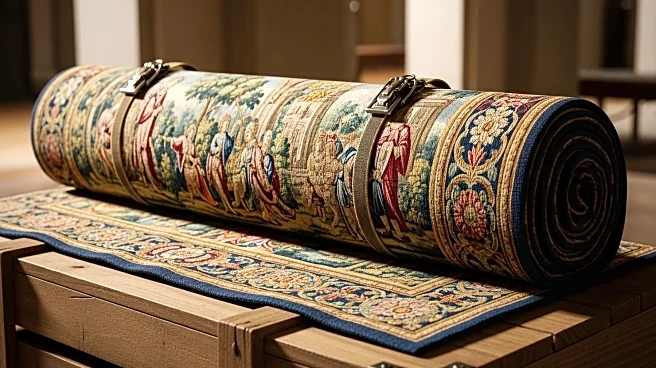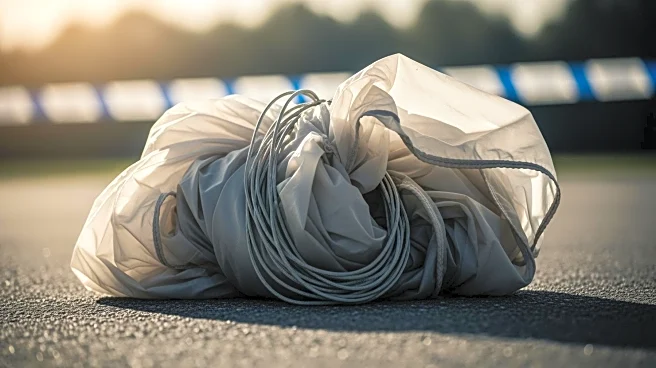What's Happening?
Nicholas Cullinan, director of the British Museum, has assured the public that the Bayeux Tapestry will be safely transported to the UK next year. This assurance comes in response to an online petition, which has gathered over 71,000 signatures, expressing concerns about the tapestry's fragility. The petition, initiated by art historian Didier Rykner, highlights warnings from textile restorers about potential damage to the 1,000-year-old embroidery. Cullinan emphasized that experts from both France and the UK are collaborating to ensure the tapestry's safe transport and conservation. The tapestry, which depicts William the Conqueror's victory in the Battle of Hastings in 1066, is scheduled to be displayed in London from September 2026 to July 2027, coinciding with the renovation of the Bayeux Tapestry Museum in Normandy.
Why It's Important?
The transportation of the Bayeux Tapestry to the UK is significant for cultural exchange and historical preservation. The tapestry is a vital piece of history, illustrating the Norman conquest of England, and its display in London will offer a unique opportunity for the British public to engage with this artifact. The collaboration between the British Museum and French authorities underscores the importance of international cooperation in preserving cultural heritage. The move also highlights the challenges and responsibilities involved in transporting and displaying fragile historical artifacts, ensuring their preservation for future generations.
What's Next?
The Bayeux Tapestry's journey to the UK will involve meticulous planning and a full dry run to ensure its safety. Once displayed in London, it will be showcased on a specially designed table to support its preservation. After the exhibition, the table will be used in the Bayeux Museum upon its reopening, continuing the tapestry's conservation. The British Museum will reciprocate by sending some of its treasures to Normandy, fostering further cultural exchange. This initiative was announced by French President Emmanuel Macron and British Prime Minister Keir Starmer, indicating strong political support for the project.










